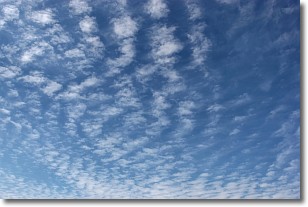Weather Alert in North Carolina
Flood Advisory issued July 9 at 9:22PM EDT until July 10 at 12:15AM EDT by NWS Greenville-Spartanburg SC
AREAS AFFECTED: Caldwell, NC
DESCRIPTION: * WHAT...Nuisance flooding caused by excessive rainfall is expected. * WHERE...A portion of western North Carolina, including the following county, Caldwell. * WHEN...Until 1215 AM EDT. * IMPACTS...Nuisance to Minor flooding of low-lying areas adjacent to streams and other poor-drainage areas, including farmland, parks, greenways, boat-access areas, golf courses, underpasses, and parking lots. Isolated, shallow flows over roadways is possible. A few flood-prone, low-water crossings may become impassible. A small culvert washout or two is possible. * ADDITIONAL DETAILS... - At 913 PM EDT, Doppler radar and automated rain gauges indicated heavy rain is ongoing due to multiple slow-moving thunderstorm cells across north central and northeastern Caldwell County from Buffalo Cove to Patterson, Lenoir, Cedar Rock, and Kings Creek. Between 1.5 and 2.5 inches of rain has fallen over the past 1-2 hours, prompting concerns for excessive runoff capable of producing areas of nuisance to Minor flooding. Areas of greatest concern include along Hawkins Creek near Nubbins Creek Rd, Buffalo Creek near Buffalo Cove Rd, and Kings Creek near Grandin Rd and Zacks Fork Rd. - Rainfall is slowly departing the area to the south and east. Another 1-2 inches of rainfall is possible, especially along the Lower Creek watershed from Cedar Rock to Lenoir. This may result in isolated areas of nuisance flooding over the next 1-2 hours. - Some locations that may experience nuisance flooding include... Lenoir, Cedar Rock, Patterson and Kings Creek. - http://www.weather.gov/safety/flood
INSTRUCTION: Be especially cautious at night when it is harder to recognize the dangers of flooding. Be aware of your surroundings and do not drive on flooded roads. In hilly terrain there are hundreds of low water crossings which are potentially dangerous in heavy rain. Do not attempt to cross flooded roads. Find an alternate route.
Want more detail? Get the Complete 7 Day and Night Detailed Forecast!
Current U.S. National Radar--Current
The Current National Weather Radar is shown below with a UTC Time (subtract 5 hours from UTC to get Eastern Time).

National Weather Forecast--Current
The Current National Weather Forecast and National Weather Map are shown below.

National Weather Forecast for Tomorrow
Tomorrow National Weather Forecast and Tomorrow National Weather Map are show below.

North America Water Vapor (Moisture)
This map shows recent moisture content over North America. Bright and colored areas show high moisture (ie, clouds); brown indicates very little moisture present; black indicates no moisture.

Weather Topic: What are Cirrocumulus Clouds?
Home - Education - Cloud Types - Cirrocumulus Clouds
 Next Topic: Cirrostratus Clouds
Next Topic: Cirrostratus Clouds
Cirrocumulus clouds form at high altitudes (usually around 5 km)
and have distinguishing characteristics displayed in a fine layer of
small cloud patches. These small cloud patches are sometimes referred to as
"cloudlets" in relation to the whole cloud formation.
Cirrocumulus clouds are formed from ice crystals and water droplets. Often, the
water droplets in the cloud freeze into ice crystals and the cloud becomes a
cirrostratus cloud. Because of this common occurrence, cirrocumulus cloud
formations generally pass rapidly.
Next Topic: Cirrostratus Clouds
Weather Topic: What are Cirrus Clouds?
Home - Education - Cloud Types - Cirrus Clouds
 Next Topic: Condensation
Next Topic: Condensation
Cirrus clouds are high-level clouds that occur above 20,000 feet
and are composed mainly of ice crystals.
They are thin and wispy in appearance.
What do they indicate?
They are often the first sign of an approaching storm.
Next Topic: Condensation
Current conditions powered by WeatherAPI.com




